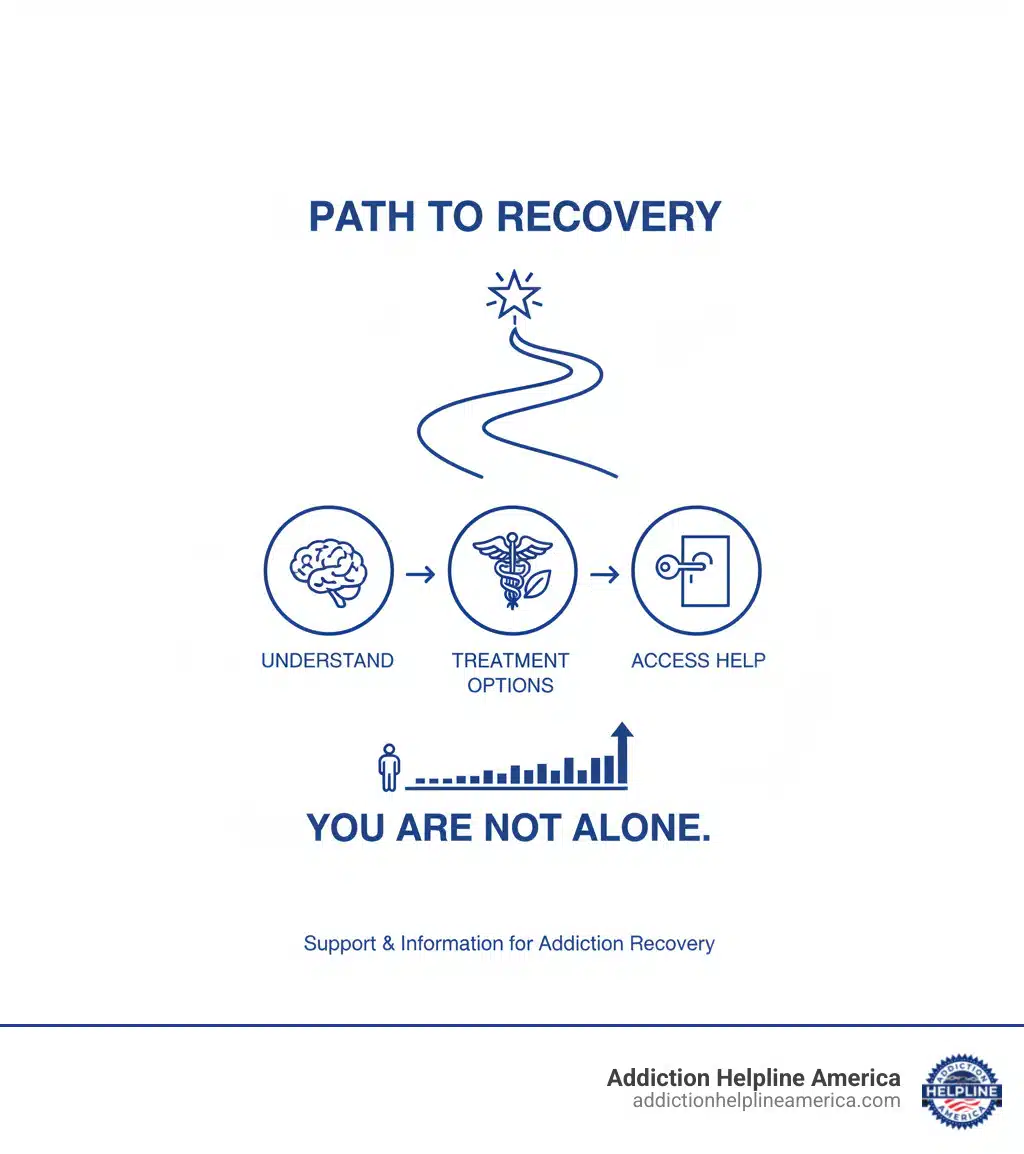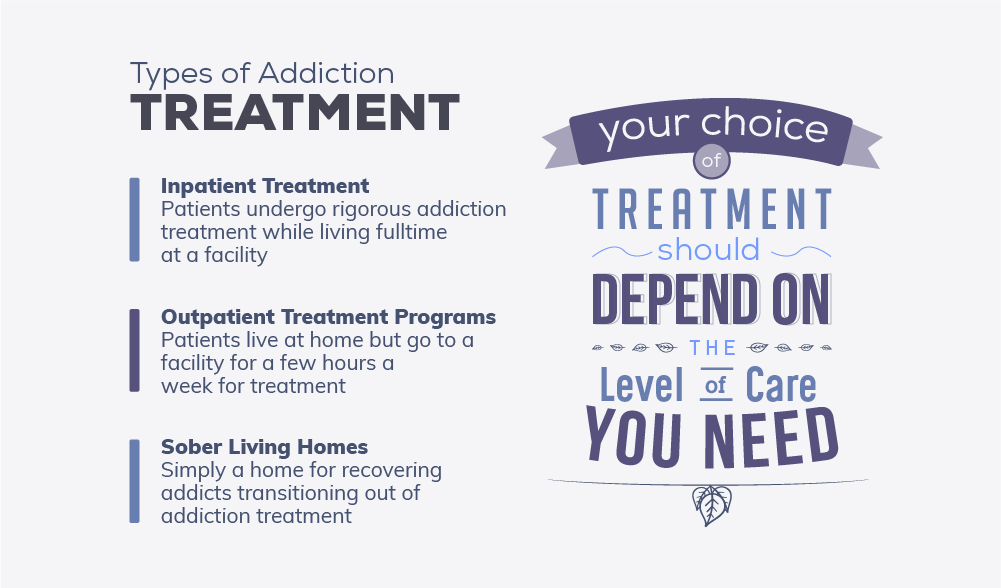Limited Availability: Treatment beds filling quickly. Call now for immediate placement – (844) 561-0606
Navigating Drug Rehabilitation Services, Drug Information can be overwhelming when you or a loved one is struggling with addiction. The path to recovery begins with understanding the available treatment options and how to access them. More than 35% of people will experience a mental health or addiction problem at some point in their lives, which means you are not alone.
Here’s a quick guide to what you need to know:
This guide breaks down everything you need to know about drug rehabilitation services. We’ll walk through recognizing addiction signs, understanding different treatment settings, finding the right program, and planning for long-term recovery. Whether you’re seeking help for yourself or supporting someone else, this information will help you make informed decisions.
At Addiction Helpline America, we connect individuals and families with the right drug rehabilitation services for lasting recovery. Our team of specialists provides 24/7 confidential support to guide you toward treatment options that align with your unique circumstances.

Addiction isn’t about weakness or poor choices. It’s a complex brain disease that changes how your mind processes reward, motivation, and memory. When someone struggles with addiction, they keep using substances despite the harm it causes—not because they lack willpower, but because their brain has been fundamentally altered.
If you’re wondering whether you or someone you love needs help, understanding the warning signs is your first step toward recovery.
The addiction community often talks about the “4 Cs”—four key indicators that substance use has crossed from casual to problematic:
Cravings feel different from simply wanting something. This is an overwhelming, all-consuming urge for the substance that can take over your thoughts and drive your actions. It’s not just “I’d like a drink”—it’s “I need this right now, no matter what.”
Compulsion means you feel powerless to resist using, even when you know it’ll cause problems. You might promise yourself you’ll stop, but when the moment comes, something deeper takes over and you find yourself using anyway.
Consequences pile up in every area of life—relationships fracture, work performance slides, health deteriorates, legal troubles emerge—yet the substance use continues. The problems become impossible to ignore, but somehow the addiction remains stronger than the desire to stop.
Loss of control shows up when you can’t stick to limits you’ve set for yourself. Maybe you planned to have just one drink or use only on weekends, but those boundaries dissolve the moment you start. The promises you make to yourself or loved ones become harder and harder to keep.
When you see these four patterns together, it’s time to seek Drug Rehabilitation Services, Drug Information from professionals who understand addiction.
Your body often tells the truth about addiction before you’re ready to admit it. These physical changes can be dramatic or subtle, but they’re real signals that something needs attention.
You might notice abrupt weight changes—either significant loss or sudden gain—that can’t be explained by diet or exercise. Personal appearance often suffers too; someone who once took pride in their grooming may suddenly stop showering regularly or wear the same clothes for days.
Sleep patterns get disrupted in noticeable ways. Some people develop severe insomnia, while others sleep excessively or at completely irregular hours. Their pupils may look different too—unusually large or unusually small depending on what they’re using.
Physical coordination often deteriorates. Tremors, slurred speech, or unsteady movements might appear during intoxication, but also during withdrawal when the substance isn’t available. Speaking of withdrawal, the body rebels when it doesn’t get what it’s become dependent on—nausea, sweating, shaking, and flu-like symptoms can emerge within hours of the last use.
Beyond physical changes, behavior shifts in telling ways. Financial problems suddenly appear—unexplained debts, constant requests to borrow money, or even theft. Someone might become secretive and evasive, hiding where they’ve been or what they’re doing.
Their social circle often changes completely. Old friendships fade as new relationships form with people who use substances. Meanwhile, performance at work or school drops noticeably—missed deadlines, absences, declining grades, or even job loss.
Personality changes can be jarring. Someone who was generally calm might become aggressive or irritable over minor issues. They lose interest in hobbies and activities they once loved. They might take risks they never would have considered before—driving while intoxicated or putting themselves in dangerous situations.
When you see several of these symptoms together, especially alongside the 4 Cs, professional help isn’t just recommended—it’s necessary.
Addiction doesn’t just damage your body and disrupt your life—it devastates your mental health in ways that can feel overwhelming.
Anxiety becomes a constant companion, creating persistent worry and nervousness that makes everyday situations feel threatening. Depression settles in with deep sadness, loss of pleasure in anything, and feelings of hopelessness that make getting through the day feel impossible.
Mood swings happen rapidly and unpredictably—you might feel relatively okay one moment and completely despondent the next. Some people develop paranoia, becoming distrustful of others without real cause.
Perhaps most telling is the preoccupation with substance use. Thoughts constantly circle around obtaining the next dose, using it, and recovering enough to function—only to start the cycle again. Meanwhile, denial builds a protective wall that makes it nearly impossible to see how bad things have actually become.
Here’s something crucial to understand: more than 35% of people will experience a mental health or addiction problem at some point in their lives. You’re not alone in this struggle, and you don’t need to face it without support.
Explore our mental health toolkit
There’s a dangerous myth that says you have to “hit rock bottom” before you can recover. This simply isn’t true—and believing it can be deadly. Waiting for rock bottom means waiting for catastrophic loss: destroyed relationships, ruined health, legal consequences, or even death.
The reality is that early intervention consistently produces better outcomes. The sooner someone gets help, the less damage addiction causes and the easier recovery becomes. You don’t need to lose everything before you deserve treatment.
If you’re seeing these signs in yourself or someone you care about, reaching out for Drug Rehabilitation Services, Drug Information today could prevent years of suffering tomorrow. Treatment works, recovery is possible, and help is available right now—you just need to take that first step.
At Addiction Helpline America, we’re here to provide confidential guidance 24/7, connecting you with the right treatment options for your unique situation. You don’t have to figure this out alone.
When you’re ready to take that brave first step toward recovery, you’ll quickly find there’s a whole world of treatment options out there. The good news? This variety means there’s something that can work for your unique situation. The challenge? Understanding what all these different programs actually mean and which one is right for you.
Drug rehabilitation services come in many forms, each designed to meet people where they are in their journey. Some folks need intensive, round-the-clock support. Others can balance treatment with their daily responsibilities. And everyone needs to start somewhere safe, especially when their body is physically dependent on a substance.
The key is matching the level of care to your specific needs. That means considering factors like how severe your addiction is, whether you have other health concerns, what your home environment looks like, and what kind of medical supervision you might need during those critical early days.
Let’s break down the main types of treatment so you can start to picture what might work best for you or your loved one.

Take the first step towards a healthier life! Call now to connect with our compassionate team and start your recovery journey today. Your path to healing awaits!
Our recovery specialists are available 24/7 to provide support, and all calls are confidential and free. Reach out anytime – we’re here to help!

Inpatient rehabilitation (or residential treatment) involves living at a facility for 24/7 care. This structured environment removes you from daily triggers, allowing you to focus entirely on healing. It’s ideal for severe addiction, co-occurring mental health issues, or an unstable home environment. Programs typically last 30, 60, or 90 days.
Outpatient programs offer flexibility, allowing you to live at home and attend scheduled therapy sessions. This works well for those with less severe addictions and a strong support system. It’s also a great step-down option after completing an inpatient program.
Detoxification (detox) is often the first step. Medically-assisted detox provides professional supervision to manage withdrawal symptoms safely and comfortably. For substances like alcohol, opioids, or benzodiazepines, this medical oversight can be life-saving. Detox stabilizes the body but is not a substitute for comprehensive treatment
| Feature | Inpatient Treatment | Outpatient Treatment |
|---|---|---|
| Intensity | High (24/7 care, highly structured) | Moderate to low (scheduled sessions, flexible) |
| Environment | Residential facility, removed from daily life | Home-based, integrates into daily life |
| Medical Support | Constant medical supervision and care | Available during sessions, less continuous |
| Cost | Generally higher | Generally lower |
| Flexibility | Limited | High (allows for work, school, family commitments) |
| Ideal Candidate | Severe addiction, co-occurring disorders, unstable home | Less severe addiction, strong support system, step-down care |
When choosing a program, look for key indicators of quality. Accreditation ensures the facility meets high standards for safety and care. A multidisciplinary team of doctors, therapists, and nurses ensures all aspects of your health are addressed. Research shows that longer treatment duration (60-90 days or more) often leads to better outcomes. Finally, ensure the program offers a personalized treatment plan and uses evidence-based approaches like Cognitive Behavioral Therapy (CBT).
More info about our treatment programs
Different substances require different treatment approaches. Effective drug rehabilitation services offer specialized programs for:
At Addiction Helpline America, our network includes centers with expertise in treating all types of substance use disorders. We can help you find a program that understands your specific needs.
Effective drug rehabilitation services combine evidence-based practices, personalized care, and a holistic approach that treats the whole person—mind, body, and spirit. It’s a comprehensive process guided by a team of qualified professionals.
Addiction rarely exists in a vacuum. It often co-occurs with mental health conditions like depression, anxiety, or PTSD. This is known as a concurrent disorder or dual diagnosis. The substance use and mental health issues often feed off each other, creating a cycle that’s difficult to break.

Take the first step towards a healthier life! Call now to connect with our compassionate team and start your recovery journey today. Your path to healing awaits!
Our recovery specialists are available 24/7 to provide support, and all calls are confidential and free. Reach out anytime – we’re here to help!

Trying to treat one condition while ignoring the other is ineffective. The best practice is integrated treatment, where a single, coordinated team addresses both the addiction and the mental health disorder simultaneously. This unified approach leads to significantly better outcomes and is a hallmark of quality care. If you’re struggling with both, know that specialized support is available.
At the heart of treatment are proven therapeutic methods. These may include:
These therapies are delivered by a multidisciplinary team that works together to support your recovery. This team typically includes:
This collaborative, team-based approach ensures that every aspect of your health is addressed, paving the way for a truly holistic recovery.
Knowing where to turn for Drug Rehabilitation Services, Drug Information is the first step. There are clear pathways to getting help, and you don’t have to steer them alone.
Starting your search can be as simple as talking to your family doctor, who can provide an assessment and referrals. You can also reach out to a confidential helpline for guidance.
At Addiction Helpline America, our mission is to simplify this process. Our team offers personalized, confidential guidance to connect you with a suitable recovery program from our nationwide network, all at no cost to you.
Concerns about cost shouldn’t be a barrier to recovery. Several options exist:
Our team can help you explore these options to find a path that works for your financial situation.
More info about our treatment programs
Addiction affects the entire family, and support is available for loved ones, too.

In a crisis, such as an overdose or suicidal thoughts, call 911 or go to the nearest hospital immediately. For urgent crisis support, you can also call or text the 9-8-8 Suicide & Crisis Lifeline.
Many treatment programs include family therapy to heal relationships, improve communication, and build a strong support system for recovery. It helps the entire family unit heal from the damage caused by addiction.
It’s also vital for family members to care for themselves. Organizations like Al-Anon and Nar-Anon offer peer support groups specifically for friends and family affected by someone else’s substance use. Connecting with others who understand can provide immense relief and guidance. Learning about addiction as a disease can also help you support your loved one more effectively and reduce shame.
Completing a rehab program is a major achievement, but it’s the beginning of a lifelong journey. Sustaining recovery requires ongoing effort, a strong support network, and a solid plan to prevent relapse.
Relapse is a process that often begins with subtle shifts in thoughts and behaviors long before substance use occurs. Recognizing these early warning signs is key to staying on track.
Long-term recovery can follow two main philosophies:
The right path is individualized. At Addiction Helpline America, we connect you with drug rehabilitation services that respect your personal goals.
A relapse prevention plan is your personalized roadmap for navigating life’s challenges without returning to substance use. It starts with identifying your triggers—the people, places, and feelings that provoke cravings—and developing healthy coping skills to manage them. These skills, learned in therapy, might include exercise, mindfulness, or reaching out to your support network.
Aftercare programs provide continued support after you leave treatment, helping you transition back to daily life. This can include ongoing counseling, alumni programs, or living in a sober living home.
Building a strong support network is crucial. This includes supportive family, sober friends, and peers in recovery. Support groups like AA and Narcotics Anonymous (NA) offer a community of people who share their experiences and provide mutual encouragement.
Sober living homes offer a structured, drug-free environment where you can practice your recovery skills while reintegrating into the community.
Long-term recovery is about building a life so fulfilling that you no longer need to escape from it. Continuing care and a strong support system are your best allies on this journey. If you need help connecting with aftercare resources, contact Addiction Helpline America.
It’s normal to have questions when considering drug rehabilitation services. Here are answers to some common ones.
The length of a rehab program depends on your individual needs. While short-term programs of 28-30 days are common, research shows that longer stays often lead to better long-term outcomes. Many experts recommend at least 60-90 days of treatment to build a strong foundation for recovery. Your treatment team will work with you to determine the right duration for your situation.
Policies on personal devices vary by facility. Most inpatient drug rehabilitation services restrict or prohibit the use of cell phones and laptops, especially in the early stages of treatment. This is done to minimize outside distractions and help you focus completely on your recovery. Some programs may allow limited, supervised access as you progress in your treatment. It’s best to ask about a specific facility’s policy before admission.
In most cases, no. Self-referral is common, meaning you can reach out for help on your own. You can call a helpline like ours at Addiction Helpline America or contact a treatment center directly to start the admissions process. While a doctor’s referral is not typically required for admission, some insurance plans may need one for coverage, so it’s always a good idea to check with your provider.
Seeking information about drug rehabilitation services is a courageous first step toward a new life. The path to recovery has its challenges, but we want you to know that hope and healing are possible.
Effective treatment is comprehensive—it addresses your physical and mental health, provides evidence-based therapies, and helps you build the life skills needed for long-term success. Most importantly, it provides a support system, reminding you that you do not have to walk this path alone.
Taking that first step can feel overwhelming, but you don’t need to have all the answers right now. The best time to seek help is not when things are at their worst, but as soon as you recognize the need for change. Early intervention leads to better outcomes.
At Addiction Helpline America, we are dedicated to making this journey easier. We provide free, confidential, and personalized guidance 24/7, connecting you with the right recovery program from our vast network of treatment centers. Our team of specialists is here to answer your questions and support you without judgment.
Recovery is possible. A new beginning is waiting. We’re here to help you find it.
Are you or a loved one struggling with addiction? Call today to speak to a treatment expert.
For anyone seeking help for addiction for themselves or a loved one calls to Addiction Helpline America are completely confidential and available 24/7.
Please note: any treatment center listed on our site that receives calls is a paid advertiser.
Calls to a specific treatment center’s listing will be connected directly to that center.
Calls to our general helpline will be answered by treatment providers, all of whom are paid advertisers.
By calling the helpline, you agree to our terms and conditions. These calls are free of charge and carry no obligation to enter treatment. Neither Sober Steps nor anyone answering your call receives a commission or fee based on your choice of treatment provider.
If you’d like to explore additional treatment options or connect with a specific rehab center, you can browse our top-rated listings, visit our homepage, or call us at (844) 561-0606. You may also contact us for further assistance.
Calls to any general helpline will be answered or returned by one of the treatment providers listed, each of which is a paid advertiser:
Our helpline is available 24 hours a day, 7 days a week at no cost to you and with no obligation for you to enter into treatment. We are committed to providing support and guidance whenever you need it.
In some cases, Addiction Helpline America charges our verified partner a modest cost per call. This fee helps us cover the costs of building and maintaining our website, ensuring that we can continue to offer this valuable service to those in need.
Addiction affects not only the individual struggling with substance use but also their loved ones. Family members often experience emotional turmoil, financial strain, and disruptions in their daily lives due to the addiction. Understanding these impacts is crucial for families as they navigate the challenges of supporting a loved one in recovery.
Family dynamics can shift dramatically when addiction is involved. Loved ones may feel helpless, angry, or confused, leading to strained relationships. It's important for families to seek support through counseling or support groups, which can provide a safe space to share experiences and learn coping strategies. By addressing the effects of addiction on the family unit, everyone can work towards healing together.
There are many misconceptions surrounding drug rehabilitation that can hinder individuals from seeking help. One common myth is that rehab is only for those who have hit rock bottom. In reality, early intervention can significantly improve the chances of successful recovery. Understanding the truth behind these myths can empower individuals to take action sooner rather than later.
Another prevalent myth is that addiction is solely a moral failing or lack of willpower. In truth, addiction is a complex disease that affects brain chemistry and behavior. By debunking these myths, we can foster a more compassionate and informed approach to addiction treatment, encouraging individuals to seek the help they need without stigma or shame.
Selecting a treatment program can be overwhelming due to the variety of options available. It's essential to consider factors such as the severity of addiction, personal preferences, and any co-occurring mental health issues when making this decision. A tailored approach ensures that the chosen program aligns with the individual's unique situation and recovery goals.
When evaluating treatment programs, look for accreditation, qualified staff, and evidence-based practices. Programs that offer a comprehensive assessment and personalized treatment plans are often more effective. Additionally, consider the support systems in place, such as aftercare services and family involvement, which can significantly enhance the recovery process.
Aftercare is a critical component of the recovery process that helps individuals maintain sobriety after completing a rehabilitation program. It involves ongoing support, resources, and strategies to prevent relapse. Engaging in aftercare can significantly improve the chances of sustained recovery and help individuals navigate challenges as they reintegrate into daily life.
Aftercare options may include continued therapy, support groups, and sober living arrangements. These resources provide a safety net and foster accountability, making it easier for individuals to cope with triggers and stressors. By prioritizing aftercare, individuals can build a solid foundation for lasting recovery and a healthier future.